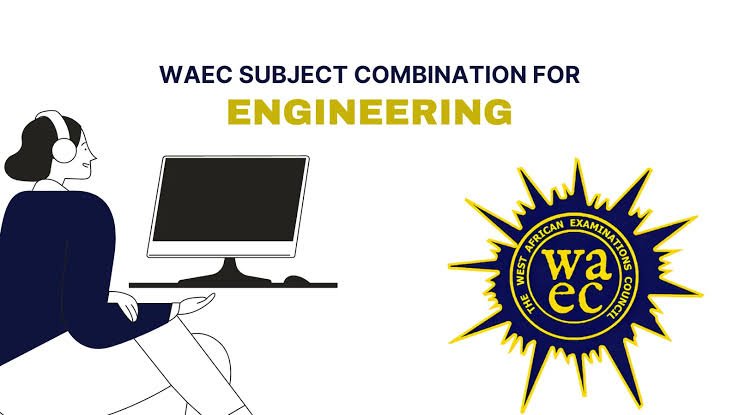Robotics engineering is a cutting-edge field that combines elements of mechanical engineering, electronics, computer science, and artificial intelligence to create automated systems.
Advertisements
Aspiring students need a strong foundation in science and mathematics, which starts with choosing the right subjects at the West African Examination Council (WAEC) level.

This guide covers essential subjects, fees, course cut-off marks, and answers frequently asked questions to help you navigate your path toward a career in robotics engineering.
WAEC Subject Requirements for Robotics Engineering
For WAEC, candidates interested in robotics engineering should focus on science subjects. The required subjects typically include:
- Mathematics – Essential for understanding algorithms and calculations used in robotics.
- English Language – Proficiency is needed for technical documentation and communication.
- Physics – Vital for understanding the mechanics and electrical aspects of robotics.
- Chemistry – Necessary for understanding materials and certain robotic components.
- Any other Science Subject (often Biology or Further Mathematics) – Though not always required, Biology can be useful if exploring biomedical robotics, and Further Mathematics strengthens problem-solving skills.
These subjects align with the Joint Admissions and Matriculation Board (JAMB) requirements for related engineering courses, where Mathematics, English, Physics, and Chemistry are also mandatory for the entrance exam
Table of Contents
ToggleCourse Fees and Duration
Robotics engineering degrees in Nigerian universities typically take 4-5 years, depending on the institution and the student’s academic performance. Fees vary widely between public and private institutions.
In public universities, tuition can range from ₦50,000 to ₦200,000 annually, while private universities may charge anywhere from ₦300,000 to over ₦1 million. Additional costs may include laboratory fees, textbooks, and equipment for practical sessions, which are crucial in robotics.
Advertisements
Course Cut-off Marks for Robotics Engineering
The cut-off mark for robotics engineering programs is usually set by each institution but generally falls between 180 and 200 in JAMB. Scoring above 200 increases your chances, as robotics engineering is a competitive field.
Additionally, post-UTME performance may be considered in some universities. Candidates are encouraged to aim higher than the minimum JAMB score to strengthen their admission prospects.
Admission Requirements for Robotics Engineering
Beyond JAMB scores and WAEC subjects, specific requirements often include:
- Five O’Level Credits in Mathematics, English, Physics, Chemistry, and an additional science subject.
- High JAMB Scores – As noted, a minimum score of 180–200 is usually required.
- Direct Entry (Optional) – Some institutions accept direct entry students with A-level passes in relevant subjects or an ND/HND with upper credit in related fields like mechanical or computer engineering.
Application Form Dates and Process
Application forms for robotics engineering are released annually, usually aligning with JAMB and university schedules. The dates vary by institution but generally open around March, following the release of JAMB results. Most universities close their application portals by September. It’s essential to check the specific dates for each institution, as deadlines can differ slightly.
Top 5 FAQs about WAEC Subjects for Robotics Engineering
- Can I study robotics engineering without Further Mathematics? Yes, Further Mathematics is not always mandatory but can be beneficial, particularly in understanding advanced concepts.
- Is robotics engineering offered in many Nigerian universities? While some universities offer dedicated robotics engineering programs, others might include robotics within mechatronics or mechanical engineering courses.
- What is the employment outlook for robotics engineering graduates? Robotics engineers can find roles in manufacturing, AI research, medical technology, and more, with demand growing in various sectors.
- Can I pursue a master’s in robotics after a general engineering degree? Yes, a degree in mechanical, electrical, or computer engineering can be a suitable foundation for advanced studies in robotics.
- What JAMB subjects should I focus on for robotics engineering? Ensure you include Mathematics, Physics, and Chemistry along with English to meet typical JAMB requirements for engineering courses
By meeting these requirements and performing well in both WAEC and JAMB, you’ll be well-prepared to pursue a fulfilling career in robotics engineering.
Related posts:
- List Of Polytechnics Offering Optometry In Nigeria And Their Cut Off Mark
- Federal University Of Health Sciences Ila Orangun School Fees
- 5 Best Private University To Study Computer Science in Nigeria
- List Of Polytechnics That Offer Information Technology in Nigeria
- Subject Needed For Microbiology In JAMB In Nigeria
- 5 Best Polytechnics for Mechanical Engineering in Nigeria
- Niger Delta University (NDU) Post UTME Screening Results Out Now: Here Is How You Can Check Yours
- UNIDEL Announces Schedule For 2024/2025 Academic Session
- Cut Off Mark For Nursing In UNN (2024/2025)
- Cut Off Mark For Nursing In LASU (2024/2025)
Advertisements